A philologist loves words. In fact, he loves them so much that he wants to know where they live, where they come from, and how they have changed in the course of their travels.
The fruit of this love, works on the subject of philology, offer much of value to the self-directed learner. In particular, they provide information that will help autodidacts make sense of languages and cultures, as well as the movements of people, practices, and products.
My own enjoyment of philology began with books such as The Mother Tongue and Native Tongues. (The author of the first also wrote Mathematics for the Millions, that of the second also spilled much ink speculating about such matters as the lost continent of Atlantis.) More recently, I have been listening to the The History of English Podcast.
The work of amateur philologist Kevin Stroud, The History of English Podcast starts with a thorough investigation of the most distant ancestor of English, the tongue spoken by the wagon-riding, plaid-weaving, axe-wielding folk we call the Indo-Europeans. This done, he devotes a lot of time to the languages of ancient Greece and Rome, as well as the speech of their wagon-riding, plaid-weaving, axe-wielding contemporaries. To put things another way, Mr. Stroud provides his listeners with a great deal of background before he introduces them to the first people to spoke something that might have been called “English.”
Between that point and the middle of 2023, Stroud produced a hundred and thirty-seven hour-long episodes of The History of English Podcast. These trace, with loving attention to detail, the evolution of English during the millennium or so that passed between the days of the Venerable Bede (673-725) and the time of William Shakespeare (1564-1616.) In other words, The History of English Podcast provides the autodidact with as much learned discourse as four college courses.
Self-directed learners who wish to enhance the experience of The History of English Podcast may want to enjoy it in tandem with David Crowther’s The History of England Podcast. While the style of the latter is much less formal than that of the former, and the programs produced by Mr. Crowther place more emphasis on people and events, the two programs cover the same ground. Indeed, they complement each other so nicely that I find myself thinking of the famous words of Tennessee Ernie Ford … “If the right one don’t get you then the left one will.”
For Further Reading:
To Share, Subscribe, or Support:


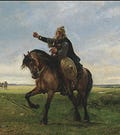

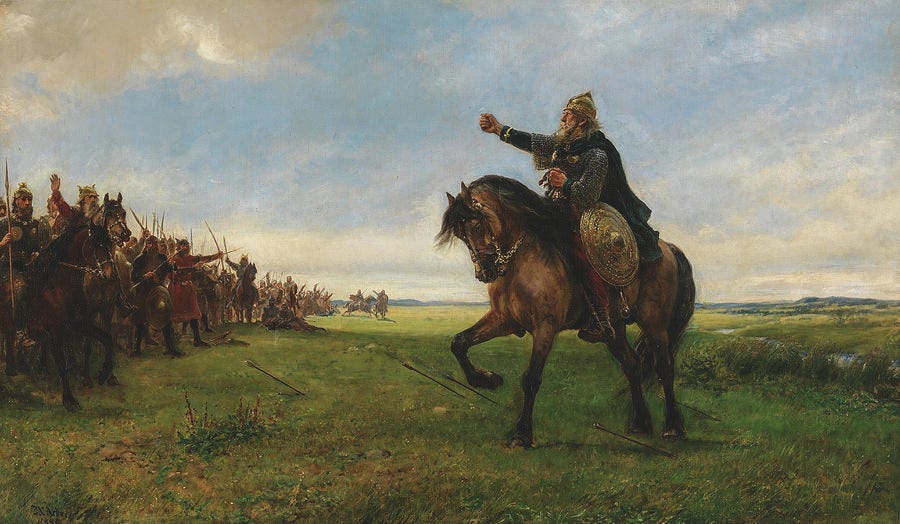
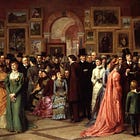
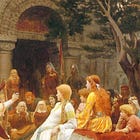
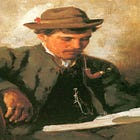
I have made two new friends. First, I need to teach myself what an autodidact is.
Another good way to make friends with philology is to learn some Ancient Greek and Latin. Serious students might check out “Greek: An Intensive Course” and “Latin: An Intensive Course”.